|
The Sleeping Village has been around for a few years now, and during that time, a lot of reviews have unceremoniously disappeared into the dark confines of our archives, destined to never see the light of the front page again. Music appreciation, however, is a timeless affair, and in that spirit, here is a review retrieved from the deep dark depths.

Written by: The Administrator (originally published June 15th, 2019)
Given the convoluted intros that have become a bit of a calling card ‘round these parts, we wizened scribes find ourselves in a bit of a situation here. Here's the rub: Entrenched is an outfit about which I know astonishingly little. No niceties regarding city of origin, or band members, or associated acts. In this sense, unless you’ve seen the gloriously indicative album artwork for their sophomore effort Endless Occupation, the music really must speak for itself. And to be honest, it doesn't speak so much as roar vivaciously. Entrenched play, for all intents and purposes, a speed and thrash-oriented brand of death a la Demolition Hammer or Morbid Saint. They wear the visceral war-torn trappings of Sodom--take the track titles, which range from the obvious ("Meatshield") to the goofy ("Goreamedic") to the exclamatory ("Terrorize the Insurgency")--and conduct themselves with the juggernaut bombast of Malevolent Rapture-era Legion of the Damned. Imagine if Merciless lost their more overtly frantic edges, and gained instead a Vader-esque sense of (moderate) composure. But yet, these comparisons are imperfect, and despite existing in a fairly well-occupied space, Entrenched are seemingly their own bloody beast, taking the bits that work, but never feeling derivative to a consequential degree. Needless to say, if you want thrashy riffs and endless bullet-belted aggression, Endless Occupation will scratch that itch with...well, take your pick of rusty implement. Rake. Machete. Lawnmower.
0 Comments

Written by: Blackie Skulless
Around the time I would have just begun discovering metal, Ohio thrashers Vindicator grew into their sound following the release of a full-length titled There Will Be Blood. Through the years of digging up underground thrash, I’d somehow overlooked them in the mix of the Municipal Waste and Violator types of the time. While having far more in common with the latter, this outfit’s first record pulls away the cleaner layers. The end result would be a stripped-down tongue-in-cheek thrash record with a teutonic inspired edge without feeling too extreme. From the get-go, you can tell that Vindicator knows how to run fast with an idea without taking themselves too seriously. The frontman going by “Marshall Law,” and song titles like “New Clear Assault” or “Thrash And Destroy” are a pretty good (v)indicator that they’re here for a good time. Simple, somewhat by-the-book song structures carry the majority of the disc, sticking with speed as the backbone for the thirty-minute runtime. A raspy snarl not unlike Mem V. Stein of earlier Exumer records coat the surface from end to end, blending nicely with the rusty but still sharp rhythms.
Editor’s note: this review was originally published in 2020 at a now-defunct site for a collaborative Best Albums of the 2010’s Retrospective. As the internet has since swallowed said site, my retrospective review now appears here in lightly edited form.
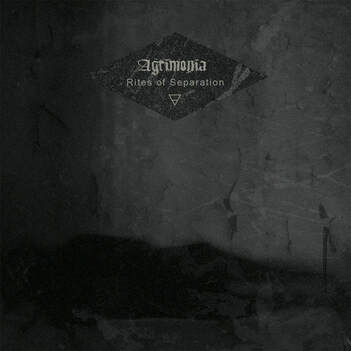
Written by: The Administrator
When initially considering what album I wanted to draw into the light for an End of Decade retrospective, the sheer volume of possibilities sent me into a bit of a frenetic journey through a decade of heavy music. Let’s face it: in ten years, the metalverse spawned an unbelievable bounty. But, eventually, the only true option became clear. For such an event I needed to focus on an album that, beyond being excellent in its own right, somehow personally set the stage for the decade as a whole. That, for me, is Agrimonia’s Rites of Separation. This album singlehandedly determined the course of my music listening experience from 2013 to the present. “Talion,” the album’s first track, begins with a piercing riff, a crystal-clear clarion call. It serves as an assertive hook, cutting through the noise before the noise even begins. This is the track that pulled me into a world of harsh vocals and aggressive atmosphere, a world of deliberate and progressive songcraft. Because Agrimonia are so genre fluid, existing betwixt black metal, sludge, post-metal, post-hardcore, crust punk, death metal, and doom, it is remarkably easy to approach their sound without any particular expectations. As such, a young acolyte to heavy music gained perspective without necessarily committing to the trappings of a particular niche. 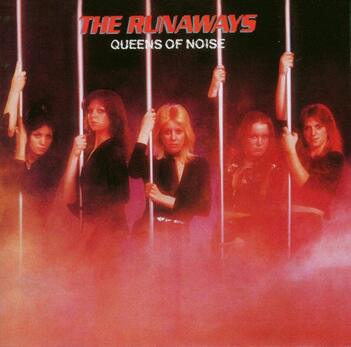 Written by: Sabrina TVBand Today The Runaways, the first all-female rock band, are highly respected. Widely acknowledged as the progenitors of the riot grrrl movement, and known for being Joan Jett and Lita Ford’s first band, The Runaways stand tall in the annals of music history. But in the 70's they were, at best, a cult favorite. The second Runaways album, 1977’s Queens of Noise, is their strongest release. In its time it only reached #172 on the Billboard 200, but it’s plain to see that contemporary audiences didn’t recognize greatness when it was right in front of them. Every Runaways album has at least two or three solid cuts, but I don’t think it’s possible to make a compelling argument that Queens of Noise isn’t the best one, even if it doesn’t have "Cherry Bomb." This is by far their most consistent and enjoyable collection of songs. 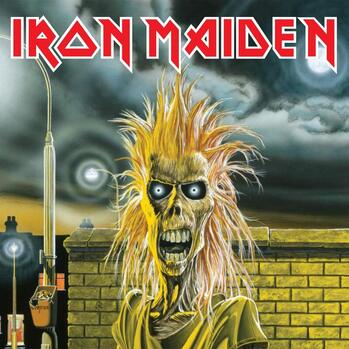 Written by: Sabrina TVBand It’s about time I put my cards on the table; I’m not a big fan of Bruce Dickinson. I have an appreciation for many Dickinson Iron Maiden songs, but like Klaus Meine I find that Dickinson has a voice that becomes grating after a few minutes. He also has an aggressive and very British nerdy goofball energy. I realize I’m mostly alone in having this opinion, but I stand by it. The Di’Anno years of Iron Maiden have been overshadowed by the subsequent Dickinson years in a big way, but Iron Maiden’s self-titled debut is still one of their stronger albums. Di’Anno is known for being a more limited vocalist than Dickinson, but within that limited range I find his voice to be a lot more enjoyable. 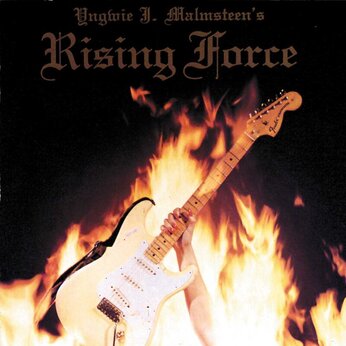 Written by: Sabrina TVBand In 1984, guitarists who could play fast were rarities. Not just “fast,” but “very fast.” Eddie Van Halen, largely because of his tapping and legato chops, was one of the fastest guitarists in his day. Al Di Meola was also pretty fast, although he didn’t make it sound easy. The fastest picker, indisputably, was Yngwie Malmsteen. Rising Force was not Yngwie’s first album; he’d first appeared on Steeler’s self titled debut in 1983, and subsequently on No Parole from Rock ‘n’ Roll by Alcatrazz. Those were the albums that introduced him to a wide audience, and let the world know how fast guitar could be played. But Yngwie’s solo debut, Rising Force, would be his first album as unquestioned artistic leader; it’s where he showed the guitar world that he was more than just a fast hired gun.
The Sleeping Village has been around for a few years now, and during that time, a lot of reviews have unceremoniously disappeared into the dark confines of our archives, destined to never see the light of the front page again. Music appreciation, however, is a timeless affair, and in that spirit, here is a review retrieved from the depths.
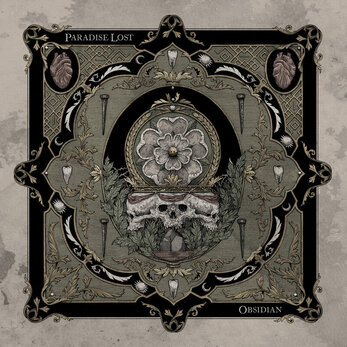
Written by: The Voiceless Apparition
34 years?! It's crazy to say that Paradise Lost have been a band for 34 years. The masters of doom and melancholy have been going steady ever since their inception with no break-ups or hiatuses in between. After a brief wait, Paradise Lost return with their 16th opus Obsidian, the follow-up to the masterful Medusa. Said album was a slight return to their original death/doom roots, albeit with a modern context...but enough about the past. Obsidian is split into three different and distinct styles. You have the more death/doom-leaning tracks, the more gothic rock/metal-based tracks, and a subtler bridging between the two styles. It feels like a natural progression from the last album, with many of the trademarks we all love and adore about Paradise Lost, but with many twists and turns along the way. Welcome to the world of Obsidian.
The Sleeping Village has been around for a few years now, and during that time, a lot of reviews have unceremoniously disappeared into the dark confines of our archives, destined to never see the light of the front page again. Music appreciation doesn't start and end upon release, and in that spirit, here is a review retrieved from the depths.
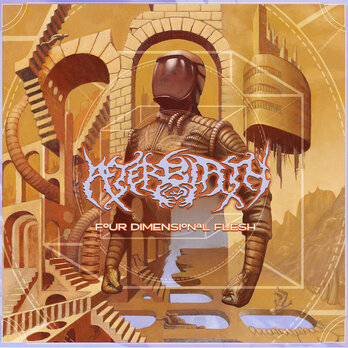
Written by: The Administrator
To be frank, I approached Four Dimensional Flesh with immense trepidation. Brutal death metal and/or slam aren’t exactly locales I find myself frequenting with any kind of regularity--if I pass through, it’s usually a lone track in the midst of an otherwise innocuous playlist. While the dedication to slammin’ riffs and woodpecker-on-a-hot-tin-roof percussive fills are certainly attractive bedfellows, the trademark drainpipe gutturals and resonance chamber bree-brees really ain’t this scribes cup o’ vox. And yet here we are, plumbing the gurgling pipes with a grim sense of glee. Why? Because Afterbirth strives to make slam interesting. And it is this quality that remains Four Dimensional Flesh’s greatest strength amongst strengths 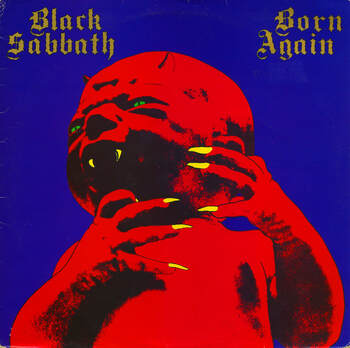 Written by: The Administrator On this fine Sabbath Sunday, we inksplattered inhabitants of the Sleeping Village have been dipping our toes in the dangerous and troubled waters of 80’s era Black Sabbath. As one does. In the grand scheme, the general sentiment is that if it ain't Ozzy or Dio, it ain't Sabbath. While I personally tend to find the albums featuring said vocalists the most appealing, we are talking about Iommi, the Rifflord Most High, and as such, there are certainly some diamonds in the rough. Case in point: 1983's Born Again--perhaps the most maligned of the black sabbathian sheep. Is it fair to say I'm disappointed that Born Again was Ian Gillian's only foray with the boys from Birmingham? My rational is that this one-off album, despite repeatedly getting the short end of the stick--often deservedly so-- demonstrates a whole lot of unactualized promise. 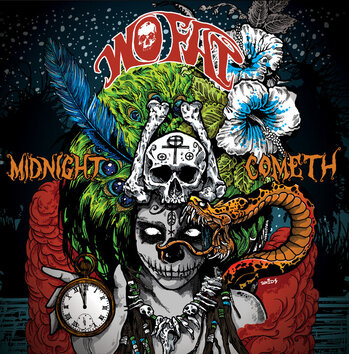
Written by: The Administrator
Despite not having the largest back catalog or most widespread popularity, Wo Fat are one of those rare monolithic bands who deliver with such marked consistency that, as time goes on, their albums seem less like moments in a discography, and more like myths that comprise a greater lore. Their latest LP comprised of new material, 2016's Midnight Cometh, is no outlier. On this no-nonsense affirmation of their core aesthetic, swirling, psychedelic, and pseudo-hypnotic riffage paves the way through a chest-deep swampy ambiance. When I think "stoner," this album rises as a prototypical paragon of the sound and the style. Maybe I'm jaded for thinking it is such a prime exemplar, but so be it. This album simply reeks of smoke. It perpetually sits behind a hazy veil. This is stoner music of the highest order, plain and simple. |
WELCOME!We provide thoughtful reviews of music that wakes us from slumber. Written by a highfalutin peasantry. Archives
July 2024
Categories
All
|
 RSS Feed
RSS Feed